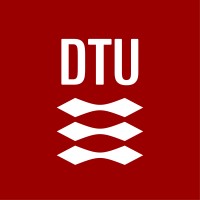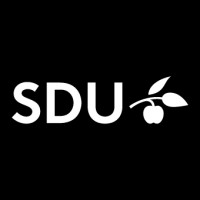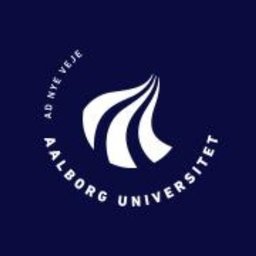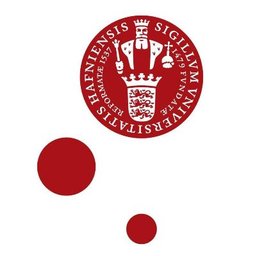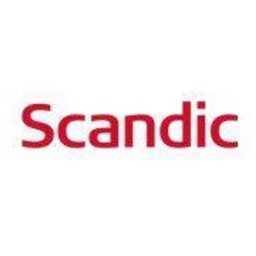The Geotechnics and Geology Section at DTU Sustain explores a novel idea of using fungal mycelium to bind aggregates in pavement infrastructure. A three-year PhD scholarship is offered in this context, with the objective of modelling, coding, and field-validating a new mechanistic analysis tool for pavements containing fungal-bound granular layers. The research will focus on urban pavements that are subjected to moving, accelerating, braking, and turning wheel loads. The work will be carried out as part of the LOOPER project, supported by the Danish Energy Agency. The LOOPER project partners are: Visibuilt (a start-up company), DTU Sustain, and Munck Asfalt (a road construction company).
Project description and tasks
This PhD project includes a combination of modelling, coding, field experiments, and parametric investigations. The modelling component will be based, as much as possible, on semi-analytical thermo-mechanical formulations. This is to facilitate calculation accuracy, numerical stability, and computational efficiency. It is expected that the coding will be done with an open-source programming language. The field experiments have the aim of validating the modelling; they will involve working with “DTU Smart Road,” a full-scale pavement research platform at DTU’s main campus that hosts embedded strain and temperature sensors. Experiments will also involve the development and installation of non-traditional sensors for pavement monitoring, such as accelerometers, gyroscopes, and dynamic tiltmeters. Lastly, parametric investigations will be carried out with the validated code, utilizing as input layer properties from the LOOPER project. The purpose of these investigations is to calculate displacements, stresses, strains, and temperatures in a wide variety of synthetic pavement systems caused by the exposure to diverse simulated weather scenarios and urban traffic loadings.
Responsibilities
Your responsibility is twofold. First, it is driving and performing the research efforts as described above while collaborating with other LOOPER researchers and DTU’s technical staff. Second, it is to fulfil the obligations defined by DTU Sustain’s PhD school, i.e., write journal articles, conference papers, and a final dissertation; engage in research dissemination activities; deliver half-year progress reports; take courses; perform department work, e.g., classroom teaching, laboratory demonstrations, grading of student projects; and participate in a three-month external stay.
Qualifications
You must have a two-year master's degree (120 ECTS points) or a similar degree with an academic level equivalent to a two-year master's degree.
Your academic background needs to be relevant to the above-stated project objectives, e.g., civil engineering, mechanical engineering, physics, or applied mathematics.
You need to have a proven ability to work independently and, in a group, possess excellent written and spoken English (Danish is an advantage), and display professional communication skills.
Approval and Enrolment
The scholarship for the PhD degree is subject to academic approval, and the candidate will be enrolled in one of the general degree programmes at DTU. For information about our enrolment requirements and the general planning of the PhD study programme, please see DTU's rules for the PhD education.
We offer
DTU is a leading technical university globally recognized for the excellence of its research, education, innovation and scientific advice. We offer a rewarding and challenging job in an international environment. We strive for academic excellence in an environment characterized by collegial respect and academic freedom tempered by responsibility.
Salary and appointment terms
The appointment will be based on the collective agreement with the Danish Confederation of Professional Associations. The allowance will be agreed upon with the relevant union. The period of employment is 3 years.
The position is a full-time position. The desired start date is as soon as possible.
You can read more about career paths at DTU here.
Further information
Further information may be obtained from Eyal Levenberg ([email protected]), Head of Section, Geotechnics and Geology.
You can read more about DTU Sustain at https://sustain.dtu.dk/
If you are applying from abroad, you may find useful information on working in Denmark and at DTU at DTU – Moving to Denmark. Furthermore, you have the option of joining our monthly free seminar “PhD relocation to Denmark and startup “Zoom” seminar” for all questions regarding the practical matters of moving to Denmark and working as a PhD at DTU.
Application procedure
Your complete online application must be submitted no later than 9 September 2025 (23:59 Danish time).
Applications must be submitted as one PDF file containing all materials to be given consideration. To apply, please open the link "Apply now", fill out the online application form, and attach all your materials in English in one PDF file. The file must include:
- A letter motivating the application (cover letter)
- Curriculum vitae
- Grade transcripts and BSc/MSc diploma (in English) including official description of grading scale
- Any other documents showing relevant competencies and experience (e.g., coding, publications, sensing)
- Your MSc thesis report
You may apply prior to obtaining your master's degree but cannot begin before having received it.
Applications received after the deadline will not be considered.
All interested candidates irrespective of age, gender, disability, race, religion or ethnic background are encouraged to apply. As DTU works with research in critical technology, which is subject to special rules for security and export control, open-source background checks may be conducted on qualified candidates for the position.
DTU Sustain is one of the largest university departments in Europe, specializing in environmental and resource engineering. The department conducts research, development and scientific advice, and provides educational programs and services to society. The Department’s mission is to develop new environmentally friendly and sustainable technologies, methods, and solutions, and to disseminate this knowledge to society and future generations of engineers. The department has approximately 300 employees from more than 30 nationalities.
Technology for people
DTU develops technology for people. With our international elite research and study programmes, we are helping to create a better world and to solve the global challenges formulated in the UN’s 17 Sustainable Development Goals. Hans Christian Ørsted founded DTU in 1829 with a clear mission to develop and create value using science and engineering to benefit society. That mission lives on today. DTU has 13,500 students and 6,000 employees. We work in an international atmosphere and have an inclusive, evolving, and informal working environment. DTU has campuses in all parts of Denmark and in Greenland, and we collaborate with the best universities around the world.
